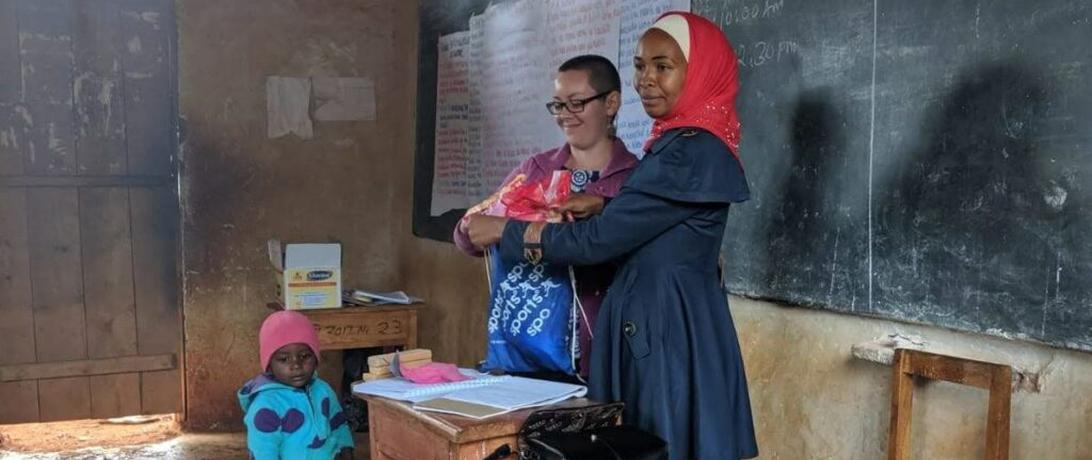By Ashley Peiffer*
"Upendo is the Swahili word for “love” and the name of one of my best friends in the Mshangai village of Tanzania where I lived as a Peace Corps volunteer from 2017-19. When I first arrived in Tanzania, I thought I knew what the village needed. It was only after getting to know my neighbors, like Upendo and her daughter, Rosie, that I realized my role as a volunteer was to drop all my preconceived notions and become part of the community first. Over the two years I spent in Mshangai, Upendo and Rosie taught me how much time and upendo it takes to build relationships and a sense of community. When I came back home to start my master’s degree at Oregon State University, I used those lessons, discovering that even without being physically present in a community, it’s still possible to maintain meaningful relationships with people across the globe..."
Continue reading Ashley's story in the CEOAS Chronicles, the blog hosted by the College of Earth, Ocean, and Atmosheric Sciences at Oregon State Univeristy.
Ashley Peiffer is a master's student in Marine Resource Management at Oregon State University. Her research with Secure Fisheries focuses on how the program has adapted in-person community engagement activities to the COVID-19 pandemic. Prior to graduate school, Ashley worked for the United States Peace Corps as a secondary education volunteer in Tanzania.
